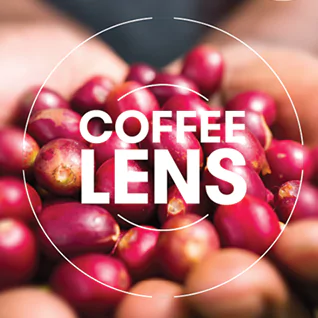Coffee LENS stories
It has been one year since we announced our public commitments for a more sustainable coffee future, with Coffee LENS (Livelihoods, Education, Nature at Scale).
Working as part of the Circular Coffee Economy project in Peru with Solidaridad and other partners, ofi engages 1,564 producers in the San Martín region on circular farming practices to improve productivity and implement agroforestry systems, wastewater management and other activities that will build their resilience to climate change.
In 2020, we performed a detailed literature review and analysis to assess if we’re focusing on the right interventions to really make a difference to farmer profitability and close the gap on living income.
High poverty rates in rural areas and a lack of school infrastructure result in a high risk of child labor in some coffee growing regions. While there are often complex socio-economic factors at play, child labor in coffee is never acceptable.
By Vivek Verma, MD & CEO Coffee, ofi
Since launching our sustainability ambition for the future of coffee two years ago – Coffee LENS - we’ve seen coffee prices swing from a four-year low, to record highs. The current spike will be offering some respite to the world’s 12.5m smallholder producers.
Through project MOCCA, we’re providing technical training and resources to help smallholders improve coffee quality and livelihoods.
Read ofi news
In a move by the Global Coffee Platform (GCP) to advance transparency and sustainability in the coffee value chain, two tiers of Olam International’s sustainability insights platform.
In a move by the Global Coffee Platform (GCP) to advance transparency and sustainability in the coffee value chain, two tiers of Olam International’s sustainability insights platform AtSource – AtSource Entry Verified1 and AtSource Plus - have been added as new sustainable sourcing schemes to the GCP Reporting on Sustainable Coffee Purchases programme2.
Olam Coffee, part of Olam Food Ingredients, is working with the Rainforest Alliance in Mexico as part of the Alliance for Sustainable Landscapes and Markets, funded by USAID, to conserve biodiversity and provide sustainable farmer livelihoods in the biological corridor of the “La Frailescana” region of Chiapas.
Olam Coffee, part of olam food ingredients (ofi), has developed a range of coffee cherry cascara products as a key ingredient for beverage infusions and concentrates across multiple applications, from ice teas to nutrition bars, to meet the growing trend for healthy indulgence.
Two tiers of ofi’s sustainability management system AtSource – AtSourceV and AtSource+ - are recognized in the 2nd party assurance list as equivalent schemes to the newly upgraded Coffee Sustainability Reference Code (CSRC), a sector framework to advance coffee sustainability efforts collaboratively and effectively.
AtSource was one of the first private schemes recognized by the Global Coffee Platform in 2021. It offers ofi’s customers – global roasters and retailers – granular data on key sustainability metrics that allows customers to build their brand by demonstrating impact to consumers, building in 3rd party verification on sustainability performance, end-to-end traceability, carbon footprint calculations, and risk assessments that customers can address through interventions with ofi’s teams to drive real change for people and planet.
Juan Antonio Rivas, Global Head - Sustainable Business Development, ofi, said:
“This recognition marks ofi’s ongoing efforts to drive greater transparency in the sector and accelerate sustainability impact in coffee farming communities and landscapes in line with key sector concerns such as farmer prosperity and climate change.
“For our coffee customers, it allows them to report AtSource purchases as “sustainable” in line with the GCP Collective Reporting on Sustainable Coffee Purchases, thereby supporting their commitments and targets.”
As part of the equivalence process, GCP partner the International Trade Centre assessed AtSource against the GCP CSRC Code for alignment with its principles of sustainable coffee production and the needs of the sector.
Annette Pensel, GCP Executive Director, added:
"We're thrilled to have had ofi continue their coffee sustainability advancement with GCP. With the GCP recognition of AtSourceV and AtSource+ as equivalent to the Coffee SR Code, 2nd party assurance, ofi is highlighting the importance of and dedication to sustainability in their work for their customers and for coffee farming communities around the world."
Discover much more about what ofi and AtSource has to offer at atsource.io



